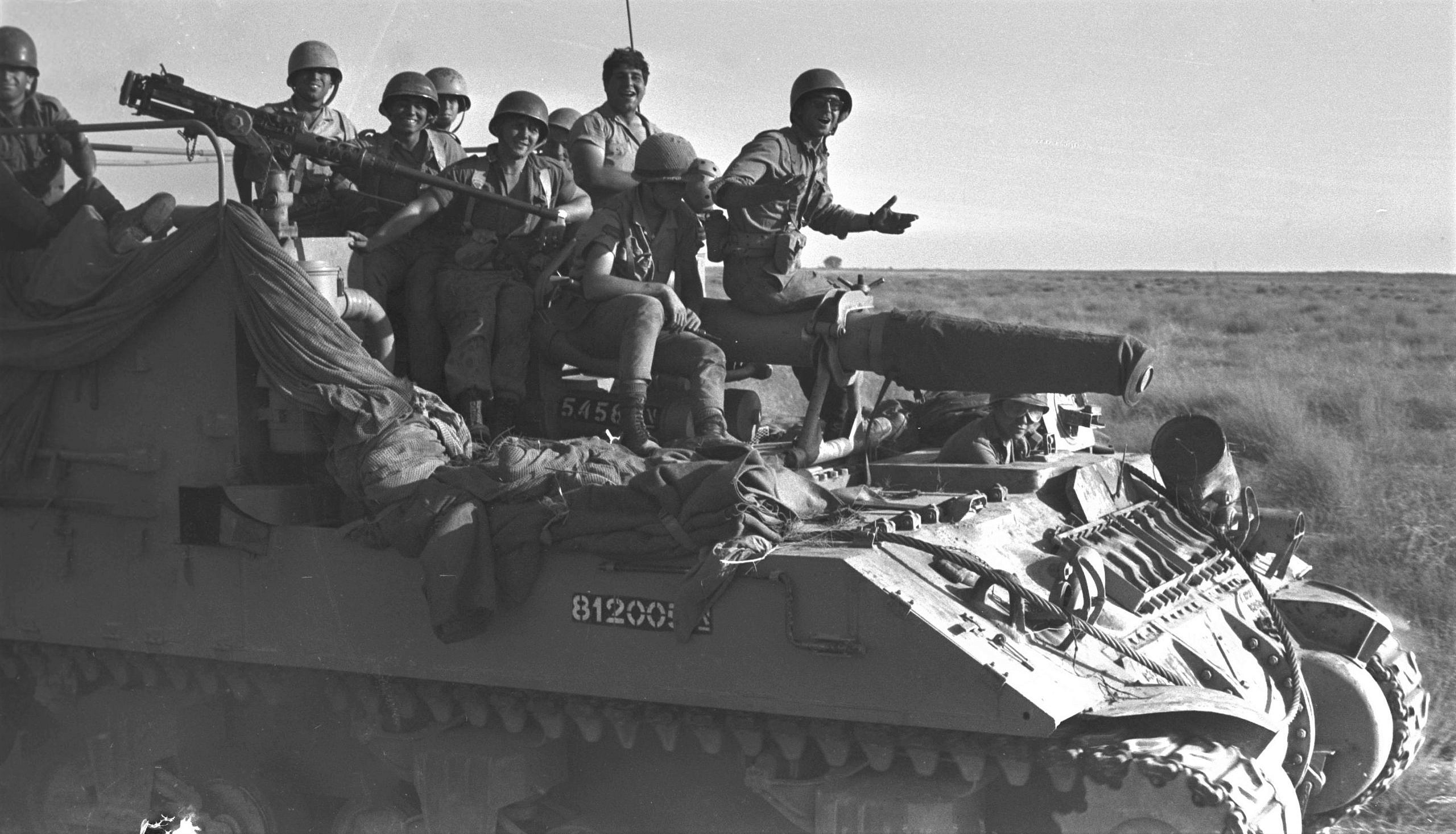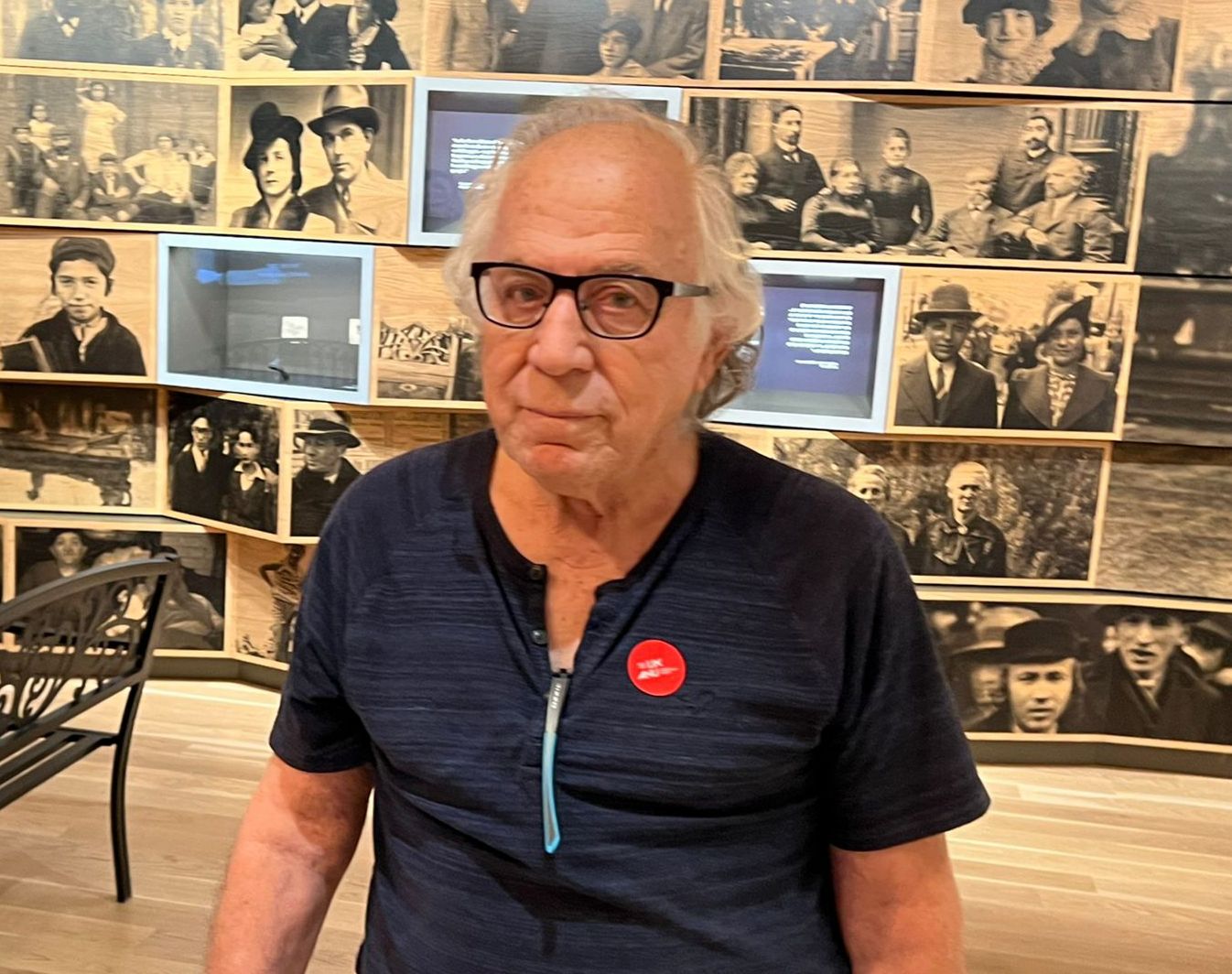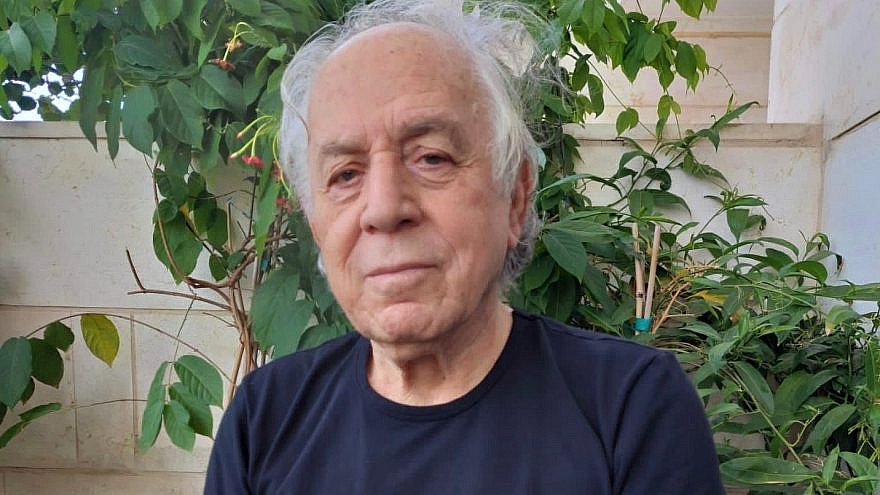David Caspi still remembers the signal phrase 56 years later: “red blanket.” At the time, he could not have known that when he led his tank unit—Division 200—towards the Suez Canal, the conflict would end so decisively and quickly. He also could not have guessed that it would come to be called the Six-Day War.
In wide-ranging interviews—one of which ran two hours in person at the ANU-Museum of the Jewish People in Tel Aviv, and the other for an-hour-and-a-half via video chat from his Tel Aviv home a few days ago—Caspi, 84, told JNS that he remembers vividly the tension and fear in the air leading up to the conflict from June 5 to June 10, 1967. (He turns 85 on May 10.)
Support vehicles accompanied the tanks, as Caspi tells it. The vehicles under his command made their way into the Sinai Peninsula. “It was very difficult terrain to traverse,” he told JNS.
“On the first day, the Egyptians were very stubborn. They would not give up their positions that easily,” he said. “Their morale declined with every passing day. We were eventually able to wear them out.”
At one point, he saw another tank group approach, but as he told his soldiers to turn their cannons towards the incoming unit, his gut told him to open the tank and send out a signal. The other responded with a “familiar” signal, he told JNS, avoiding friendly fire.
When the two Israeli units met, the other commander—a tall lanky man Caspi remembers as Ze’ev—told him: “We ourselves weren’t sure if you were an Israeli or Egyptian tank unit.” Ze’ev added that his battalion had lost half of its tanks in combat.
“It was the touch of God. We almost finished each other off in friendly fire,” Caspi told JNS, still emotional about that close brush.

‘I want to make it out alive’
Tactically, Caspi and his soldiers sought to minimize time spent outside their tanks, which was too dangerous. They mostly engaged other tanks. Caspi lamented that the European-made Centurions could shoot while moving but suffered technical drawbacks in desert warfare, for which they were not intended.
On June 8, Day 4, Division 200 took a route through the Gidi Pass in the Sinai Desert. As they went through a canyon, a fresh Egyptian battalion arrived, “eager for battle.” His commander told him to go forward, Caspi told him he would follow orders but didn’t think they would make it.
Despite thinking that the Egyptians had an advantage over the Israelis like that of the Persian army, which outnumbered the Greeks many times over at Thermopylae—as mythologized, for example, in the 2006 film “300”—Caspi’s tank rolled out, the first one in the canyon, where the Egyptians awaited.
“They put up a good fight,” he said.
But Caspi and company prevailed. With nowhere to house prisoners of war and loath to kill POWs, they returned the Egyptian soldiers they captured to the Egyptian side.
“We treated prisoners better than they treated our soldiers when captured,” he told JNS. After making sure the Egyptians had no weapons, Israeli forces would give the captives water before sending them to rejoin their comrades.
After the confrontation, Caspi and his soldiers drove at full speed the roughly 18-and-a-half miles to the Suez Canal. Along the way, they encountered a few hostile tanks before arriving at the canal on the fifth day.
Caspi still recalls radioing the commander to say that Zalman (Caspi’s code name) “is at the Suez, and I can spit on the canal.”
The commanding officer, Isca Sadmi, arrived promptly to document the historic moment in a photograph. Israeli troops were closing in on the Egyptian capital and had the strategic zone in their grasp.
“The temperature was just wonderful,” Caspi recalls, “but there were so many flies.”
Israeli Air Force planes and infantry had entered Egyptian territory before then, but Caspi has the distinction of being the first tank to reach the Suez, he told JNS.
“We were very fortunate that after the battle, we had only two wounded and two damaged tanks,” he said.

A ‘natural-born leader’
Caspi started off in the Six-Day War as a captain but was promoted to major for his wartime accomplishments. He later served in the Yom Kippur War in 1973 and was promoted to lieutenant colonel. Those who know him told JNS that his success and leadership didn’t surprise them.
Born David Zilberman in 1938 in Izmir, Turkey, his paternal ancestors were Yiddish-speaking Ukrainian Jews, while his mother’s family was of Ladino-speaking, Sephardic heritage. His family moved to Israel in 1948 amid the War of Independence, when David was 10. A few years later, the family changed its last name to Caspi.
“David was always a natural-born leader. That charisma he possessed is what enabled him to lead men in battle, and later, become a principal and create future leaders,” the Denver-based Isaac Adler, a friend of Caspi’s since elementary school, told JNS.
After the war, Caspi served on reserve duty (Sherut Milu’im) and worked as a high school principal in Ramle. In 1973, his commanding officer fell in the northern front in Syria, so Yossi Peled, who was commanding the reserve unit, promoted him to lieutenant colonel.
He returned to his job as school principal after the Yom Kippur War.


























